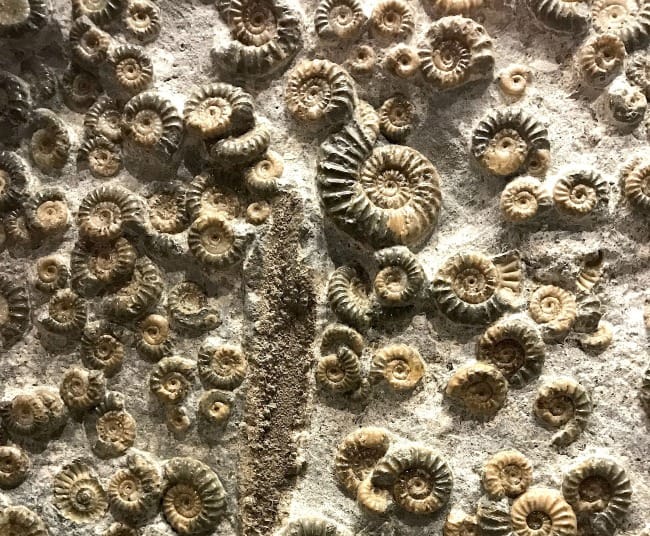Today I share a poem from American poet Ellen Bass.
The Big Picture
by Ellen Bass
I try to look at the big picture.
The sun, ardent tongue
licking us like a mother besotted
with her new cub, will wear itself out.
Everything is transitory.
Think of the meteor
that annihilated the dinosaurs.
And before that, the volcanoes
of the Permian period — all those burnt ferns
and reptiles, sharks and bony fish —
that was extinction on a scale
that makes our losses look like a bad day at the slots.
And perhaps we’re slated to ascend
to some kind of intelligence
that doesn’t need bodies, or clean water, or even air.
But I can’t shake my longing
for the last six hundred
Iberian lynx with their tufted ears,
Brazilian guitarfish, the 4
percent of them still cruising
the seafloor, eyes staring straight up.
And all the newborn marsupials —
red kangaroos, joeys the size of honeybees — steelhead trout, river dolphins,
all we can save
so many species of frogs
breathing through their
damp permeable membranes.
Today on the bus, a woman
in a sweater the exact shade of cardinals,
and her cardinal-colored bra strap, exposed
on her pale shoulder, makes me ache
for those bright flashes in the snow.
And polar bears, the cream and amber
of their fur, the long, hollow
hairs through which sun slips,
swallowed into their dark skin. When I get home,
my son has a headache and, though he’s
almost grown, asks me to sing him a song.
We lie together on the lumpy couch
and I warble out the old show tunes, “Night and Day”…
“They Can’t Take That Away from Me”… A cheap
silver chain shimmers across his throat
rising and falling with his pulse. There never was
anything else. Only these excruciatingly
insignificant creatures we love.
“The Big Picture" © Ellen Bass, 2007, from The Human Line (Copper Canyon Press, 2007).

In her poem, "The Big Picture, " poet Ellen Bass expresses that in the large scheme of things, the inhabitants of earth can be seen as a mere blip on a long timeline in a huge universe. After all, massive extinctions have happened before in the history of our planet. In the words of her poem—"Everything is transitory." And yet, in the face of this stark statement, Bass reminds us that the big picture isn't the only picture there is. The continuing existence of human and animal inhabitants is more than just a philosophical and intellectual potentiality.
Stepping in from the big picture enables us to see the details of the world—details such as "joeys the size of honeybees" and "Iberian lynx with their tufted ears." In the same way that a glimpse of a person's red clothing against pale skin evokes a reminder for Bass of beloved cardinals in the snow, the glimpsed images in her poem remind readers, too, of what and who they love in this world and the primary importance of that affection. When we step in close, the reality of what we are in danger of losing becomes visible to us.

With its concluding phrase, the poem reminds us that the creatures we love are "excruciatingly insignificant creatures." It may not make rational sense that so much depends upon the "frogs breathing through their damp permeable membranes and the "almost grown" son. And yet, "longing" (or love) toward them imbues our world with meaning. And we don't write off creatures that we love as collateral damage. Love isn't manifested best through abstract philosophies and belief systems but in practical actions such as cuddling with someone on a lumpy couch and singing songs when he isn't feeling well. Or in seeing and acting on behalf of “all we can save.”
It is painful to love particular forms of beauty (which is the literal meaning of the Latin word "species") when we know we are at risk of losing them. Emotionally, there are advantages to believing in a bodiless, earthless vision of the future because that dulls the pain of what is currently happening to the earth and its creatures. Given the possibility of great loss, is there a point in feeling affection for the "the last six hundred/Iberian lynx with their tufted ears"? It always takes courage to love someone or something, but in Bass’ words, “There never was anything else.”
One question the poem might leave us with (if we have the courage to care about creatures at risk), is how do we actually actively care for something like the Brazilian guitarfish? I probably know how to sit on the couch and sing songs to my son, but what can I do for creatures that I may never even see? I believe the specific answers to that are as specific as the creatures on this earth, but also as simple as "choose something and do it. Then choose something else and do that." Find a place to start (in the case of the Brazilian guitarfish, the threat is overfishing, especially in its nursery grounds), and figure out if there is a way for you to make a difference, no matter how small that difference might seem. It might be easiest to make a difference if you choose something a little closer to home than the Brazilian guitarfish, but even if you go that far afield, there are organizations that are doing work you can support.
When you find a way to make a difference, we here at Circlewood would love to hear about it.
Feel free to leave a comment below or contact me directly at louise.conner@circlewood.online.
Louise

A reminder: Last week, I wrote about Joel Sartore and his project called the Photo Ark in which he is trying to photograph every species under human care (not unlike what Ellen Bass is doing through the words of this poem). As I said last week, I would love to create and publish our own "Circlewood Photo Ark" with help from our readers all over the world. Can you find a creature (or creatures) to add to our ark? If so, take a picture (a close-up if possible) and send it to me at louise.conner@circlewood.online before the end of October. (Thank you to those who have already sent me pictures!) If we get enough photos for a collection, I'll create a column of them so everyone can see what creatures are perching in the trees and hiding under the leaves in our own parts of the world. (If you send in a photograph, please include your name, the name of the creature if you know it, and your location—thanks!).